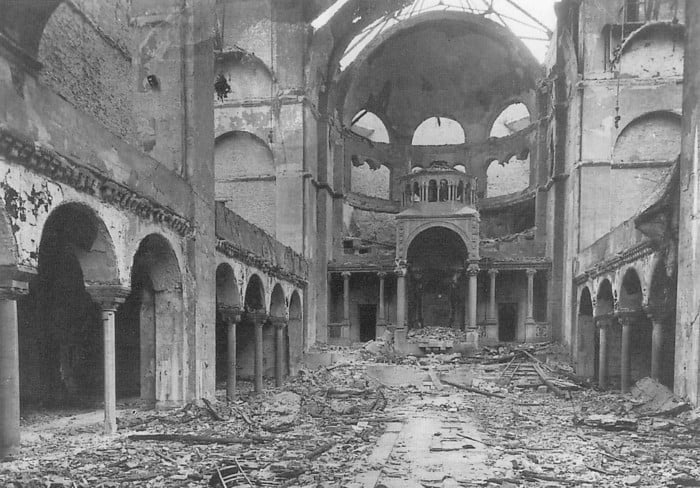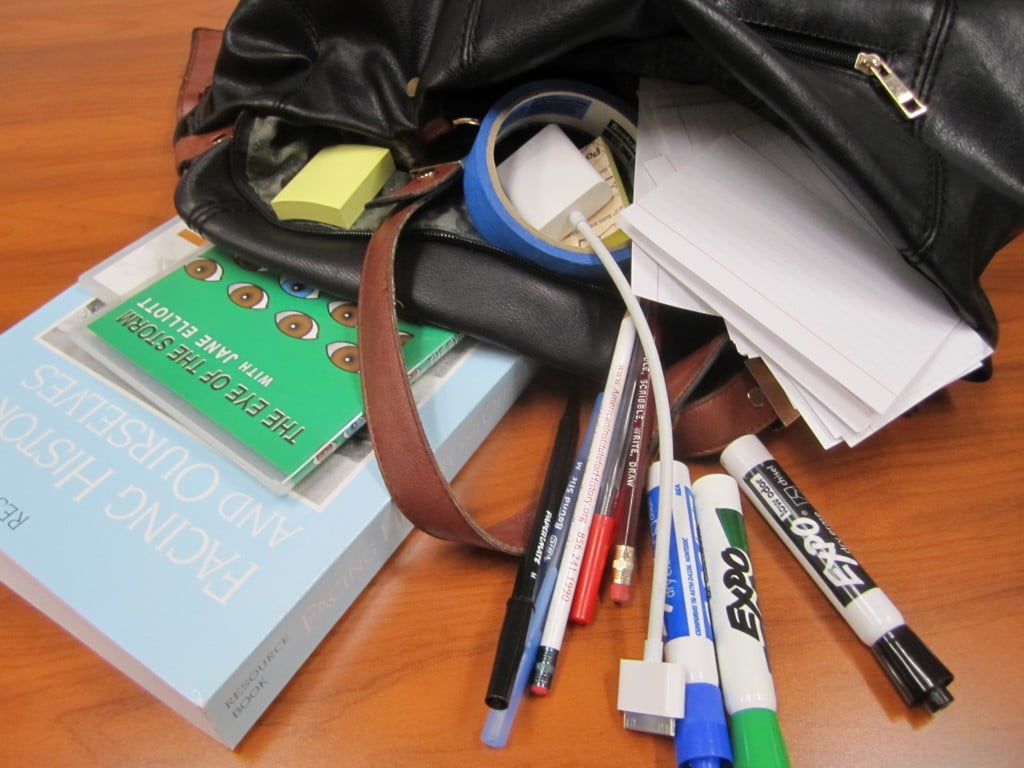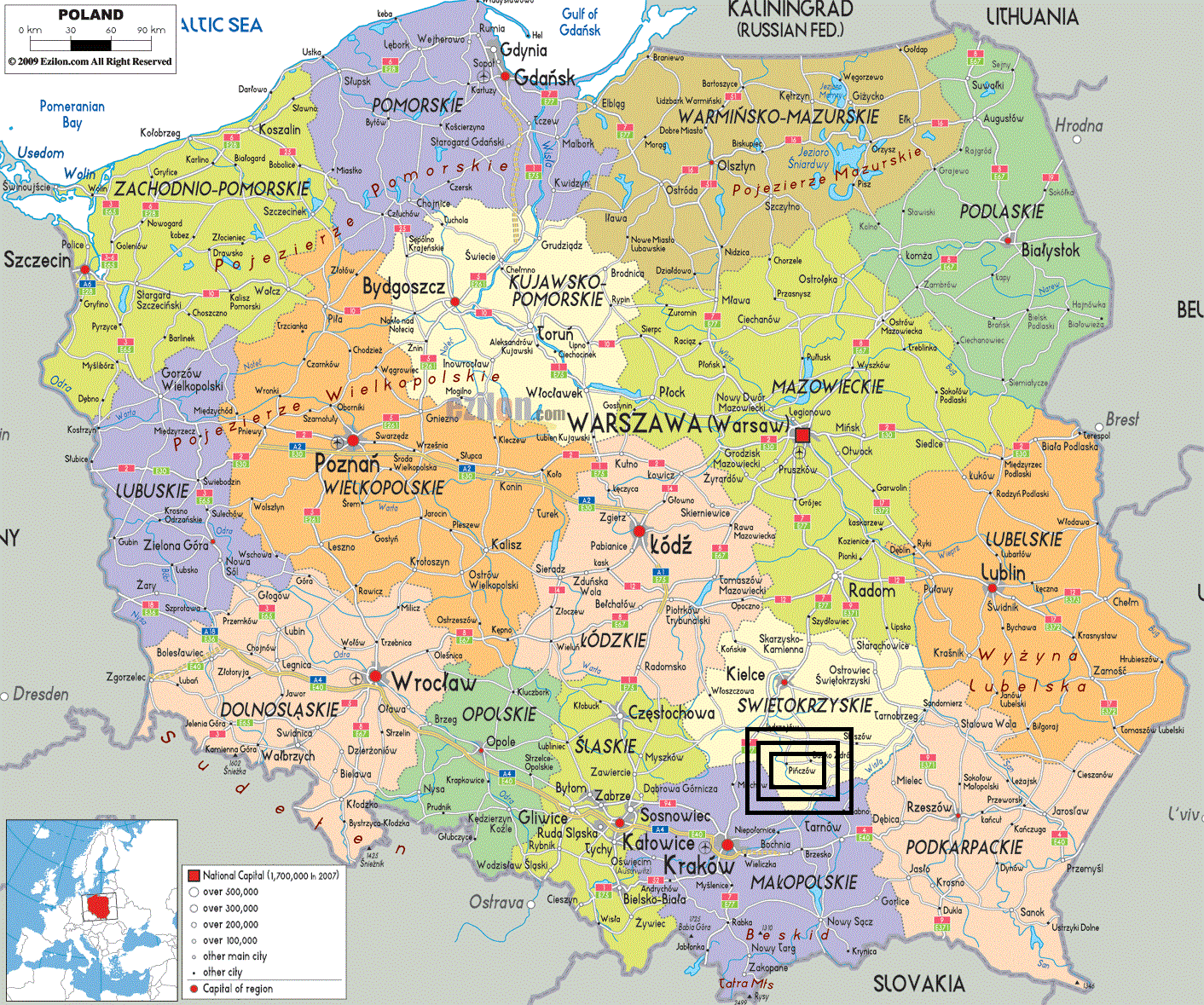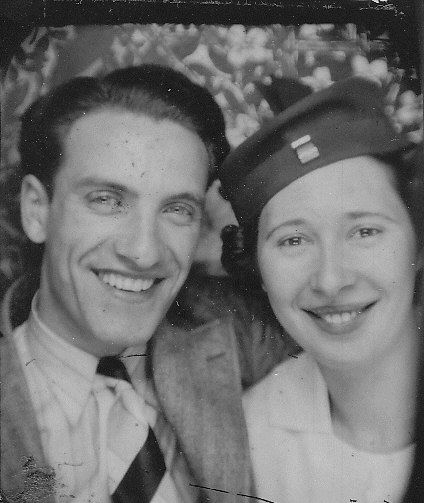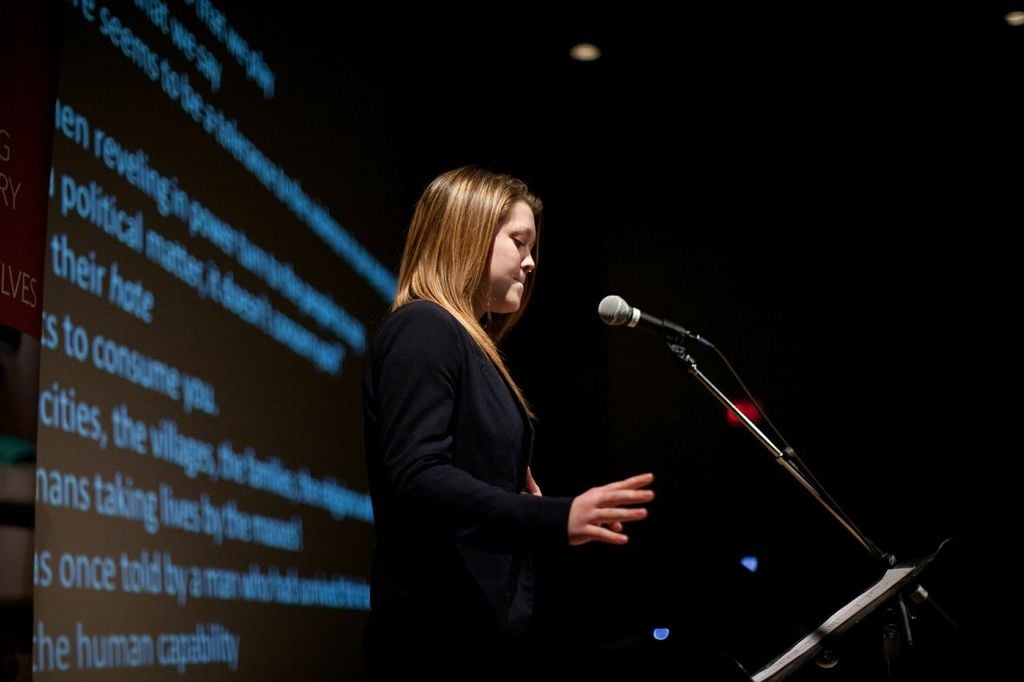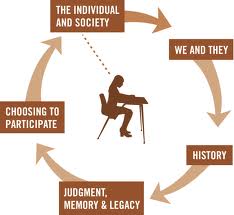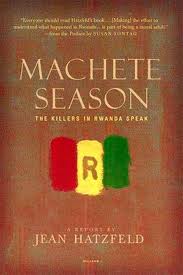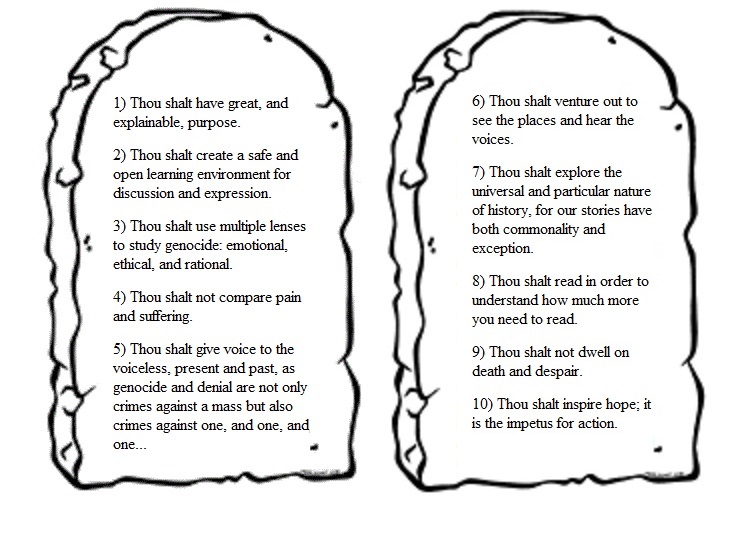As the end of the calendar year quickly creeps up on us, the Facing History blogging team decided to discuss the future and, while talking about the future, we reminisced about the past. We thought about what a great year of sharing and learning it has been. We decided that to celebrate this year of blogging we wanted to share with our readers the posts, voices, and teaching ideas that made us pause, think, and reflect – on history and on ourselves. Over the next few days we will be sharing our favorite posts and undiscovered gems from our LANetwork Blog out of Los Angeles, our OnNetwork Blog here in Toronto, and our InterFacing Blog, which focuses on the intersection of technology and education. Thank you for joining us on the blogs over the last 12 months. We hope these gems of wisdom and practice from the past help you reflect on your own year that was, and be sure to subscribe to this blog to make sure you see the Best of 2013, meet the new bloggers, and read exciting new posts in 2014! Happy New Year from all of us here in the Toronto Office of Facing History and Ourselves.
Ben Gross
Recent Posts
Topics: Choosing to Participate, Facing History Resources, History, videos, Top Blogs, Best of..., Best of 2013, Holocaust and Human Behaviour
Commemorating Kristallnacht: Connecting to the Past, Learning Lessons for the Present
Posted by Ben Gross on November 7, 2013
This Saturday marks the 75th anniversary of Kristallnacht or “Night of the Broken Glass." On the night of November 9th, 1938, Nazis and their followers looted and destroyed thousands of Jewish homes and businesses, and scores of synagogues. They killed over ninety Jews that night, and sent over 30,000 others concentration camps.
Topics: Choosing to Participate, History, Memorial, current events, genocide, Genocide and Crimes Against Humanities Course, In the news, Social Justice, reflection
Rob Flosman is assistant head of history at Waterdown District High School in Hamilton. This year he is writing for our sister blog InterFacing. I don't want to give away all the details about his incredible project, the goal of which is to make history personal, relevant, and alive for his students and community, because he says it so well himself! With the support of a 2013 Margot Stern Strom Innovation Grant from Facing History and Ourselves, Rob is in the process of creating a truly incredible legacy for his school and community. Click here to read his first blog on the early stages of his project.
Topics: Choosing to Participate, Facing History Resources, Identity, History, Technology, genocide, legacy, Genocide and Crimes Against Humanities Course, CHG, Personal history
A familiar feeling is in the air as the Labour Day long weekend approaches. It might be hard to put our finger on if it wasn’t such an important part of such a large portion of our lives; school. The first day of school is one filled with excitement, promise, and expectation.
As our students arrive in our classrooms, we need to be ready to facilitate the creation of a safe and open learning environment. That first day, and those first few weeks, set the tone for the rest of the year.
What’s in YOUR bag this year as your students meet you back in the classroom? What tools, strategies, lessons are your “go-to” items to help you engage, inspire, and push your students to new heights?
Topics: Back-To-School, Strategies, Lesson Ideas
This summer, Jack Lipinsky, along with 10 other Facing History and Ourselves teachers from Jewish day schools around North America, participated in a week-long study trip to central Poland. The trip was led by Facing History’s Director of Jewish Education Jan Darsa. It was sponsored by Polish non-profit The Forum for Dialogue Among Nations. His experiences, in particular his visit to the town of Pińczów, impacted him greatly.
Topics: Choosing to Participate, History, We and They, Culturally Responsive and Relevant Pedagogy, In the news, Personal history, reflection
I don't know much about the history of my dad’s family. I used to think that this was because there was not much known. I'm beginning to think differently. What I know about my dad’s side of the family is that my Zaida (grandpa) came in 1920 from what was then Ukraine (now Belarus) as a refugee via a camp in Romania. My Baba (grandma) came in 1914 as an immigrant with her aunt’s family from Ukraine, near Kiev. The legend of the family is that they were on the last boat before World War 1 broke out. My Zaida was a refugee from the same war that my Baba narrowly avoided. I know that after marrying, my Zaida served in World War II before starting a family. He had three children; two daughters and my father. There weren’t too many other details that I knew, especially about the family pre-World War II.
Topics: Choosing to Participate, Identity, History, legacy, Personal history, reflection
As the end of each school year draws near, I feel a great deal of frustration. As students are overwhelmed with culminating assignments or the decisions that they made about completing school work for the previous 9 months, the demands on the teacher expand exponentially as well. As I work with the Growing Success system and school programs such as student success and credit rescue, I struggle to ensure that the decisions that I make maintain the integrity of the course, give students the opportunities they deserve or need, and maintain the intent of the ideals of character education. I find this overwhelming.
Topics: Choosing to Participate, History, Genocide and Crimes Against Humanities Course, Holocaust and Human Behaviour, CHG
As you may have read in other blogs, the “Stand Up, Speak Out” event was an incredible evening of sharing and community. For me it served to exemplify, and personify, the Scope and Sequence of Facing History and Ourselves. On that evening, half a dozen of my students took the stage along with students from three other southern Ontario schools to perform their spoken word pieces. The performances were broken down into the five steps of the Facing History Scope and Sequence:
Topics: Choosing to Participate, Facing History Resources, Identity, History, Urban Education, project, We and They, Strategies, Culturally Responsive and Relevant Pedagogy, genocide, legacy, Genocide and Crimes Against Humanities Course, Holocaust and Human Behaviour, CHG, reflection
After a year of learning about Genocide and Crimes Against Humanity, students gravitate towards complex and profound questions that are increasingly difficult to answer. In a setting that involves teaching at-risk youth, this type of engagement can be frustratingly elusive. The lesson (content wise) that I will share with you today is one that should not stand alone. This took place in class after having done 3 case studies, including Rwanda, and a unit on concepts of Justice and Memorial. I found that this lesson was very successful at engaging students of all stripes through particular stories of perpetrators to try to gain a better understanding of universal questions of guilt, responsibility, reconciliation, and justice.
Topics: Facing History Resources, History, Urban Education, Strategies, genocide, Genocide and Crimes Against Humanities Course, Lesson Ideas, big paper, CHG

